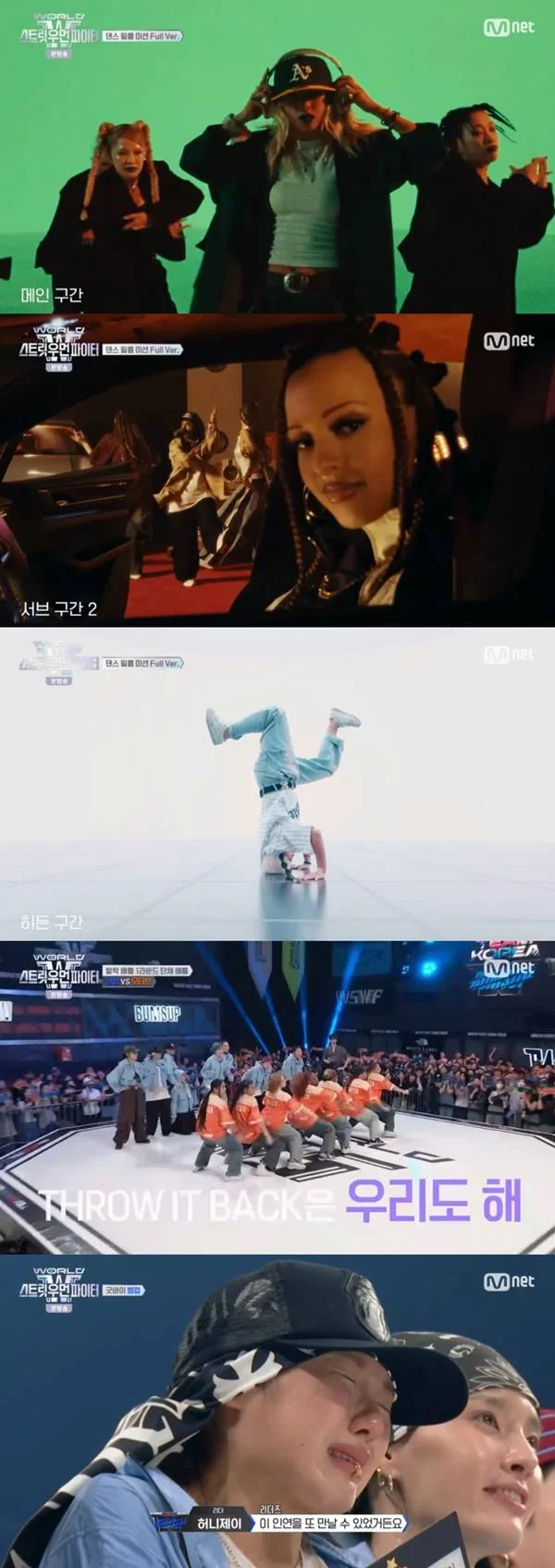“What I want to say most is BUMSUP, you laid the foundation for this program. If Season 1 of Street Woman Fighter had failed, World Street Woman Fighter wouldn’t even exist. You made this global stage a reality.”
These were the words of judge Mike Song on the July 15th episode of Mnet’s dance survival show World Street Woman Fighter (aka WSWF), as he addressed the shock elimination of BUMSUP, a Korean crew formed by the main figures of Season 1.

Despite not making it to the final round, BUMSUP’s legacy was honored deservedly so. Their elimination stunned not only fellow contestants but also long-time viewers who witnessed the beginning of the SWF phenomenon. But what might have seemed like a major loss at first glance may actually be one of the show’s most powerful moments.
A Necessary Shock for a Global Vision
The word “World” in the program’s title is not decorative. It signals an evolution—from a national showdown to a truly international competition. In that sense, the elimination of a Korean crew, especially one with such symbolic weight, emphasizes the show’s commitment to global fairness and skill-based judging.

Rather than leaning on home-field bias, WSWF doubled down on its mission as a meritocratic platform. The fact that BUMSUP a beloved, high-profile team—could fall speaks volumes about the show’s integrity and strengthens its credibility for future international seasons.
Popularity vs. Performance
BUMSUP entered the show as the team to beat. Their members had built strong public profiles through Street Woman Fighter Season 1, and early mission videos consistently topped view and like counts. However, the crew was formed on short notice, resulting in less synergy than longer-standing teams.
As the season progressed, global crews began to shine. Osaka Ojogang, especially standout member Kyoka, captured growing attention. Though BUMSUP’s videos continued to dominate in views, their “likes” began to slip, reflecting a shift in viewer sentiment.

BUMSUP’s downfall came in the semifinal battle—a stage where past accolades meant little. It was their first time as challengers, needing to win with pure skill, not reputation. Ironically, it was on this final stage that BUMSUP delivered one of their most cohesive performances, full of precision, energy, and emotional impact.
However, their opponent, Motiv, a U.S. crew built for battle, had the edge. Their hip-hop foundation and battle-oriented movement brought a sharper, more aggressive performance. Judging was clinical, and in the end, BUMSUP bowed out.
More Than Just an Elimination
Ironically, BUMSUP gave perhaps their strongest showing on the very stage where they were eliminated without outside support, without gimmicks, purely through team synergy. And yet, they fell. That moment underscored what WSWF is all about: no legacy is safe, no reputation guaranteed.
This wasn’t just a twist in the storyline it was a definitive answer to an important question: What does this program truly value?

BUMSUP’s elimination reaffirmed that the show remains committed to its core identity a global, skill-based survival where performance trumps all else. It was a painful reminder, but also a necessary one. One that may just ensure World of Street Woman Fighter earns not only global reach, but global respect.

